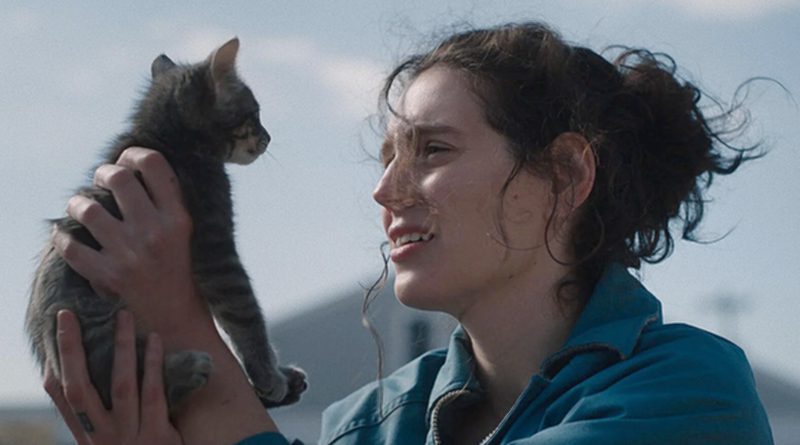Sorry, Baby Review: Eva Victor’s Solid Debut Feature Combines Dry Humour with Nuanced Drama About Overcoming Trauma
Multi-hyphenate Eva Victor’s debut feature, Sorry, Baby finds humour in a post-traumatic situation. And in this case, the aftermath of a sexual assault — the bad thing that happens to Agnes (Victor). The story here is told in a non-chronological order, all divided into five chapters, beginning with Agnes is happy with the arrival of her best friend, Lydie (Naomi Ackie), for a weekend get-together in a rural New England town.
There’s an immediate sense of lived-in friendship dynamic between Victor’s Agnes and Ackie’s Lydie, like how they spend time cosied up on the couch sitting across each other with a blanket while talking about sex and everything. Agnes soon learns that Lydie is pregnant. Things get uncomfortable during a reunion dinner with their old college friends, and one of them, Natasha (Kelly McCormack), starts making snide remarks about Agnes landing the job as a professor. The situation turns awkward for Agnes, but Lydie is quick enough to defend her by hitting back at Natasha.
The second chapter, titled “The Year with the Bad Thing”, is where the movie hits the hardest. We learn that Agnes and Lydie used to be grad students under the teaching of Professor Preston Decker (Louis Cancelmi). Everything soon changes when Decker invites her to his home. Here, Victor favours a long, static shot that remains stationary, focusing on Decker’s house as daylight turns into nighttime, indicating something has happened.
But she refrains from showing the obvious, opting for the power of suggestion rather than the in-your-face, show-but-don’t-tell visual approach. The small details matter here, like how Agnes hastily leaves the house and quickly puts on her boots without saying goodbye. Or how her expression stays vacant as the camera is fixated from outside the windshield as she drives back home with only the ambient sound filling in the background.
The only time the movie gets graphic is when the shell-shocked Agnes tells Lydie every detail about what happened at Decker’s place. It was one of the most devastating moments in the movie, even though the scene itself relies entirely on spoken words recounting the traumatic incident. A story like this could have gone the familiar route of a victim of a sexual assault becoming severely depressed, thinking of suicide, or plotting vengeance against the person responsible for such an action.
But Victor is somehow bold enough to avoid the cliche by delving into the subject matter in an unexpectedly dark comedy approach. Like the scene where Agnes with Lydie accompanying her to visit a doctor, and later, the way the persons-in-charge of the college’s disciplinary board handle the situation between Agnes and Decker. The movie could have easily resorted to overacting and shouting, particularly if it fell in the lesser hands of a director. And yet, Victor, the director and the actor herself, uses dry, deadpan humour and subtly restrained drama to explore how she chooses to cope with her underlying trauma.
As the movie progresses, she manages to find solace after stumbling upon an abandoned cat on the street, where she later names it Olga. She also finds comfort after getting intimate with her kind neighbour, Gavin (a wonderful Lucas Hedges). Rather than dwelling on the past, it’s more about attempting to move on as life goes on, even though the signs, including the state of denial, still linger in Victor’s mind.
Eva Victor steals the show here both on-screen and off-screen. As an actress, she plays the role with a quietly affecting performance and at the same time, brings a dash of dry wit in some scenes without making her character’s personality look awkwardly misplaced. She is backed by Naomi Ackie, who delivers a strong supporting turn as Agnes’ best friend, Lydie. Victor’s non-chronological narrative decision could have been easily dismissed as a storytelling gimmick, but it works well to keep me hooked throughout the movie.





